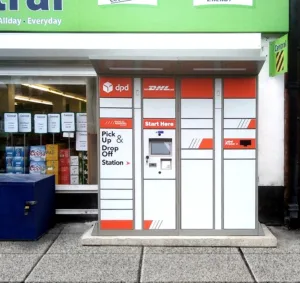By Richard Willis, RVP Solution Consulting, EMEA and APAC at Aptos
Retail has been one of the sectors hardest hit by COVID-19, with 2020 being one of the worst years on record for retail sales growth. While the impact has been immensely damaging, the global pandemic has also provided the impetus to change the way retailers operate. For the majority, technology has been a lifeline when their stores’ doors shut, forcing a dramatic shift to digital-first sales and customer engagement.
There is no denying many brands saw a surge in footfall and sales when nonessential retailers reopened, and will see another surge once subsequent lockdown restrictions are lifted again. However, there is no escaping the fact that there’s still a pressing need for a progressive approach to digital transformation. Speed and agility must be the driving forces behind these changes as retailers look for ways to adapt in the face of disruption, which in some cases can occur literally overnight.
Finding your tech DNA
Since the onset of COVID-19, retailers have been forced to take a hard look at what they sell, where and how they sell it, and to whom. During national lockdowns, digital content and interactions have become more commonplace and have played a central role in virtually every customer journey. As a result, shopping experiences have extended across more channels and have become more complex than ever before.
While many retailers recognise this new reality, they lack the tools and capabilities required to connect the dots. Despite the urgency to create differentiated and joined-up customer journeys that drive conversion and retention, many functions within retail enterprises still operate in their own worlds. Also, the reality is that retailers continue to maintain an extremely limited view of the holistic customer journey.
That’s not to say retail executives don’t understand the need for advanced technology – indeed, global IT spending in retail is expected to reach $188.5 billion by 2026. As the need for digital transformation accelerates at unprecedented speeds across the global retail industry, it has become abundantly clear that retailers must fully embed digital into all aspects of their operations. To achieve that, retailers must embed technology into the very DNA of their business and gain the upper hand in a time of uncertainty.
To establish tech DNA, retailers must have technology at the core of its business. It must touch all areas of the organisation and influence its people, its processes, and even its performance. By doing this, retailers will have detailed insight into their business operations from the ground up, get closer to their customers, and ultimately reap the rewards of innovation.
Tech alone is not enough
While digital transformation is critical to succeed in today’s ultra-fast, ultra-competitive marketplace, it is crucial retailers don’t fall into the trap of tech for tech’s sake. Technology investment made without a guiding strategy – or without the necessary process changes – won’t pay dividends and will only result in time and money being wasted.
Instead, technology must be what connects every facet of the business and supports the entire value chain: product, order, and customer lifecycles. While ‘buzzy’ one-off tech experiences (think a flashy VR display) can be impressive, the priority for retailers must be technology that enables integration. This includes the integration of operational silos as well as every step of the customer journey.
For recruiting and personnel development; planning, pricing, and supply chain; logistics and operations; and marketing and customer experiences, the possibilities are endless once retailers can secure actionable customer and operational insights.
An inflection point
As my colleague Nikki Baird eloquently wrote, ‘At no time has there been such a clear inflection point for retailers who invest to make it to that future vs. those who don’t.’
Now is the time for retailers to identify the gaps in their technology capabilities that have previously left them exposed. These gaps have to be addressed quickly so that they can deliver new channels to market or new processes to meet customer needs and, in turn, keep their business moving forward during these unprecedented times.
A survey by Gartner reinforces the importance of digital transformation as we enter the ‘next normal’. In the research firm’s annual global survey of CIOs, Gartner found that ‘top performing enterprises are accelerating digital innovation and leveraging emerging technologies to come out stronger on the other side of the COVID-19 pandemic.’
Gartner went on to say: ‘2021 will be a race to digital, with the spoils going to those organizations that can maintain the momentum built up during their response to the pandemic.’
As the Gartner research underscores, retail organisations must have a defined vision of how technology will help fulfil the brand’s promise to customers, using business and customer data to craft compelling customer experiences and operational excellence.










